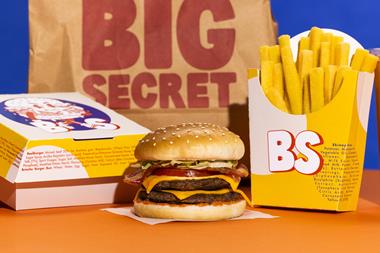I’ve been feeling a little bit sorry for Coca-Cola of late.
I know, I know. It’s a behemoth. A monster. A shining example of the rampant power of Western commercialism.
Be that as it may, as the biggest player in the soft drinks market – indeed the biggest fmcg brand in the UK - it is also a key whipping boy of health campaigners, particularly those keen to see the introduction of a ‘sugar tax’.
For all the accusations thrown its way, however, Coca-Cola has done a lot to offer consumers choice (while obviously adding to its bottom line - it’s a business, after all). Diet Coke and Coke Zero are very low-calorie options (zero, in the case of Zero), and many of its other brands offer a healthy version alongside a ‘full-fat’ one.
As far as I’m concerned, that should be where Coke’s responsibility ends. It has made healthy versions of its products widely available – whether they are purchased is down to the consumer, not the supplier.
But it appears the pressure of the health lobbyists has got to Coke, and after we revealed its plans last month, tonight it is unveiling a multimillion-pound push that will explain you’ll get fat if you take in too many calories – including those in Coke – and don’t burn enough off.
The two-minute ad called ‘Coming Together’ (no sniggering at the back), to be screened during primetime TV tonight, is an Anglicised version of one previously aired in the US. Much fun can be had watching the two side-by-side to see how this has been done – there are fewer tans and more sporting activities in the UK version, for example, while the British voiceover helps lessen the ‘cheese’ factor.
Both, however, have very few examples of people who look as if their BMI is anything less than optimal - and many of the characters in the British ad have terribly white teeth.
Those last couple of points will be leapt on by Coke’s critics, who will ignore the fact the company has also just announced it is ditching its standard Sprite (admittedly one of its weakest performing brands right now) and replacing it with a lower-calorie stevia version. Or that it has increased its commitment to supporting grassroots sports.
Yes, many of these moves are PR driven, but they are also genuinely positive things that are increasing the options consumers have for drinking and living more healthily. As we revealed last week, a BBC documentary is set to question Coca-Cola’s motivation in promoting exercise. I fear that for Coke’s fiercest opponents, anything less than running ads telling consumers NOT to drink Coca-Cola, or even the abolition of ‘full-fat’ Coke, will not go far enough.


















